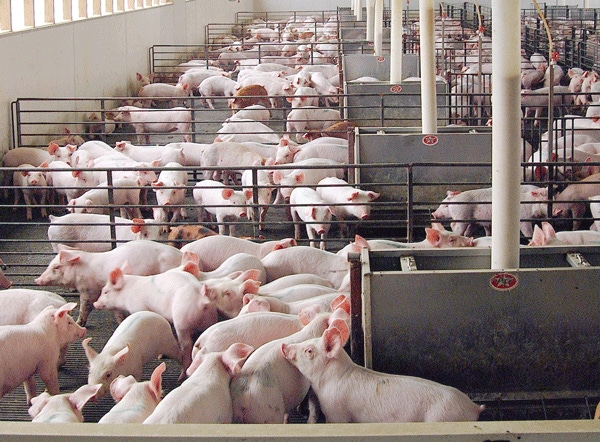February 2, 2011

Antibiotics are frequently used on commercial hog farms not only to fight disease, but also to help pigs gain weight faster.
New research from North Carolina State University and Kansas State University shows that the common pests that live on these farms acquire antibiotic-resistant bacteria and have the potential to spread these bacteria throughout the farm and to residential settings.
Cockroaches and house flies on swine farms in North Carolina and Kansas contained many of the same drug-resistant bacteria present in hog feces, suggesting that these common pests acquired the bacteria from contact with swine manure. These drug-resistant bacteria are rarely found in cockroaches and flies collected in urban areas.
The bacteria, different members of a family of common digestive bacteria called enterococci, found in the digestive tracts of farm flies and roach feces, contained certain genes that provide resistance to antibiotics, says Coby Schal, Blanton J. Whitmire Distinguished Professor of Entomology at NC State and a co-author of a paper describing the research, which was published online this week in the journal BMC Microbiology. Some of these bacteria are resistant not only to single common infection-killing antibiotics like tetracycline and streptomycin, but also to combinations of antibiotics, making them multi-drug resistant.
“The big concern is not that humans will acquire drug-resistant bacteria from their properly cooked bacon or sausage, but rather that the bacteria will be transferred to humans from the common pests that live with pigs and then move in with us,” Schal says. “It’s also possible that these farm flies and farm roaches carry other microbes of great importance to human health.”
Antibiotic-resistant bacteria — “superbugs” in the popular parlance — are an increasing problem in the United States, causing increased health-care costs, prolonged hospitalization for infections and higher human mortality rates.
“Pest-management strategies are important — the fly at your picnic or roach scuttling across the living room floor can be more than just a nuisance,” Schal adds.
You May Also Like




